Diabetes is due to less insulin not absorbing sugar, at this point there is a sugar deficiency and should be supplemented, why should you eat less food with less sugar?
I think it's too vague for this questioning style!
My personal shallow interpretation;
First of all, let the patient understand what is insulin? Insulin refers to the name of the drug injected to control sugar, not the pancreatic fluid discharged from the patient's own pancreatic ducts (that is, one of the organic volatile components in the dissolution of the diet), and the patient's liver, kidneys, and spleen have been severely damaged due to the long-term injections of insulin or oral medium- and long-acting glycemic drugs, and inibited the pancreas (that is, the name of the organ of the clinical medical science ~ pancreatic islets), at this time the pancreas is just like a lazy person, as other people are given to hold the parcel that they are already idle (that is, the drug replaces the normal metabolic function of the pancreas). That is, the drug replaces the normal metabolic function of the pancreas), combined with some individual doctors in order to reduce the patient's blood glucose value in a hurry, they prescribe some unsuitable for this period of the medium- and long-lasting drugs, but also require patients to this food can not be eaten, that food to eat less, and even require patients to eat more vegetarian food or eat less and more often, and so on. For patients with high blood glucose values after the mood swings are very big can only be passive to accept the treatment ....... I don't know that the heavens to the human body placed six organs (I personally think that in addition to the heart, liver, spleen, lungs and kidneys, the pancreas should also be a viscera) six bowels, six bowels and six organs of the function is to generate and enrich the human body's gas, blood, and water and the body's metabolism. According to the unrealistic treatment and advocate patients to control the diet to lower sugar, then the human body needs qi, blood and water and where to come from? The human body lacks qi and blood water is also a lack of nutrients to lose the ability to fight diseases, (for sugary foods can not be eaten, sugar is also an indispensable component of the body's carbohydrates), which caused endocrine disorders in the body dysregulation, resulting in blood glucose fluctuating high and low, so; as a doctor should be evidence-based treatment of high blood glucose at the crux of the problem rather than just to control the sugar, as the patient to develop good eating habits (eat at the right time) and dinner, and the patient to control diet to reduce sugar, the patient should be good diet (the patient should be good diet). It is important for patients to have good dietary habits (eating at the right time) and to take a walk after dinner. It is also recommended that patients who have diabetes for a long time tend to have unstable blood glucose, and make it a habit to bring a few pieces of fruit candies to replenish the candies in time when there is a sudden lack of energy and sweating.
The subject seems to be making a lot of sense, but it's actually wrong!
Diabetics do not have a sugar deficiency; there is more sugar in the diabetic's body, but the excess sugar is free in the blood, elevating the glucose level in the blood above that of a normal person. We also diagnose diabetes based on the glucose level in the blood.
Too much sugar is concentrated in the bloodstream and does not enter the body's cells, then it cannot be utilized by the cells, and cannot provide energy for the cells, which are then in a state of starvation.
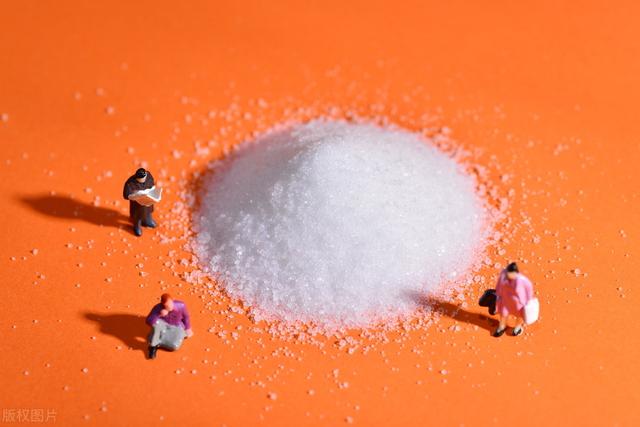
If insulin levels in the body are elevated without the use of drugs to get glucose into the cells, then the body's cells will choose other energy-supplying substances, such as ketone bodies, which are produced by the breakdown of fats and proteins and are utilized by the body for energy supply in the event of an acute glucose metabolism disorder.
What diabetics lack in their bodies is insulin, which is almost non-existent in type 1 diabetics and insufficient in type 2 diabetics. Therefore, when the glucose level in the blood rises, we have to take measures to increase the amount of insulin in the body to encourage glucose to enter the cells.
While type 1 diabetics require insulin injections, type 2 diabetics use medications to stimulate the pancreas to produce a certain amount of insulin to control blood sugar. The medications usually chosen are insulinotropic agents, DPP-4 inhibitors, GLP-1 receptor agonists, and other medications are able to increase insulin levels in the body.
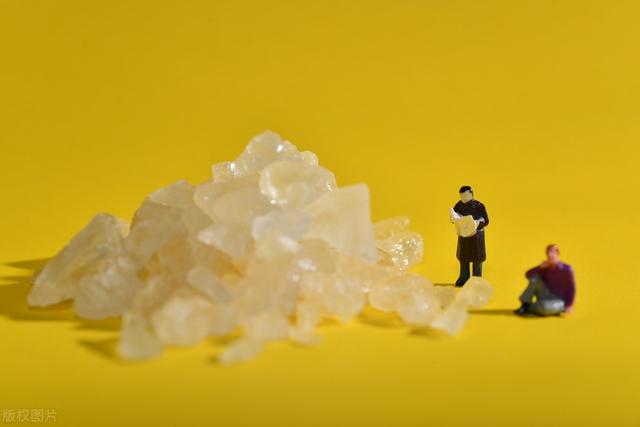
This is the reasoning behind the sparing and blocking of water by Da Yu, the sugar in the body is not utilized, and the more you replenish the sugar the more obvious the disorder of sugar metabolism in the body will be. To use the measure of dredging, the use of insulin to make the sugar into the cells, the amount of glucose in the blood will fall.
To summarize: it's important to know about diabetes, it's one of the quintet of diabetes treatments, and the more we know, the better we'll control our blood sugar without taking it for granted and thus going astray.
Diabetes is due to low insulin (absolute or relative insufficiency), did not absorb sugar, this statement is correct. However, the resulting idea that "there is a lack of sugar at this point" is wrong, and the subsequent statement about replenishing sugar is naturally wrong as well.
I. Metabolic process of normal blood sugar
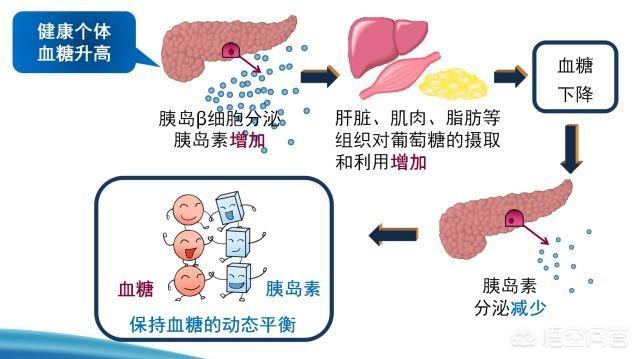
of normal individualsGlucose metabolism, a process in which insulin and blood sugar, maintain a dynamic balance.
①When the blood glucose concentration in our body rises, pancreatic islet B cells will secrete more insulin to increase the utilization of blood glucose. At this time, some of the blood glucose, will be directly consumed for the body's energy supply; there is also a part of the blood glucose, will be converted into liver glycogen, or myoglycogen storage; and some will be converted to non-sugar substances.
② When the concentration of blood glucose in our body decreases, insulin secreted by pancreatic B cells decreases, blood glucose utilization decreases, and glycogen and non-glycemic substances are converted to blood glucose.
This is a dynamic balance between insulin and blood sugar.
Second, diabetes insulin insufficiency, the body does not lack sugar
Diabetes is indeed a deficiency of insulin in the body; type 1 diabetes manifests itself as an absolute deficiency of insulin because the pancreatic B-cells are virtually apoptotic; type 2 diabetes manifests itself as a relative deficiency because of the presence of insulin resistance.
Due to insulin deficiency, the blood sugar in our blood vessels, cannot be utilized by the body or converted properly into glycogen and non-sugar substances. Instead, it is free in the blood vessels and, along with urine, is excreted all the way out of the body.
Therefore.We don't have a sugar deficiency in our bodies, rather we have more blood sugar.
Third, diabetes must control diet, especially the intake of high-sugar foods
When the blood glucose concentration in our body, is high for a long time, it can cause damage to the endothelial cells of blood vessels. Next, waiting for us sugar lovers, may be the emergence of various complications.
Diet as a foundation for sugar control.Sugar lovers must control their diet.Sugar lovers themselves have high blood glucose concentrations and naturally reduce their intake of foods that are high in sugar.Sugary drinks, in particular, are generally not recommended.In the near future.Both saw two reports of ketoacidosis resulting from long-term consumption of sugar-sweetened beverages.
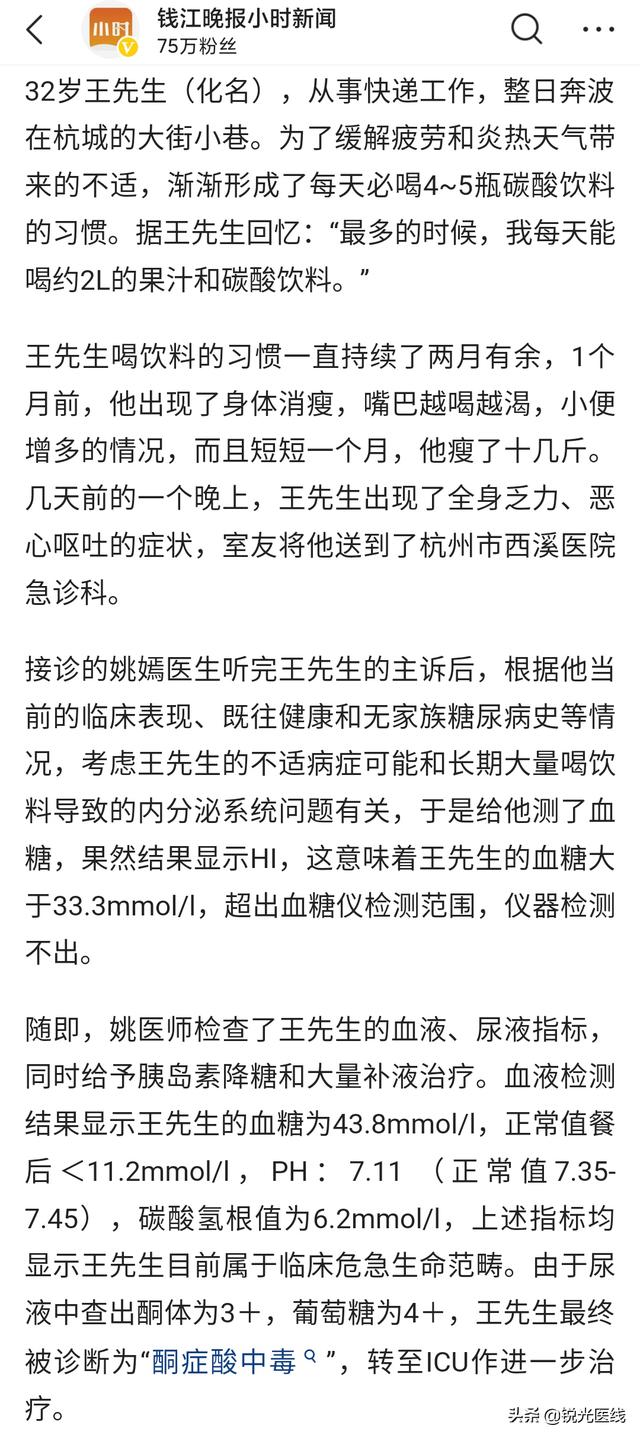
Overall, insulin is insufficient in sugar patients, resulting in is elevated blood sugar in the body and the need to control the intake of high-sugar foods!
It's not easy to create, so if you find it helpful, please like, retweet, or comment! If you still don't understand, please leave a message in the comment section!
It's the right question to ask and the wrong question to ask.
1. rightly so, there are prerequisites for diabetes to be able to eat sugar:
Diabetes is due to the fact that less insulin is not absorbing sugar, at this point there is a sugar deficiency, and sugar should be replenished provided that there is -diabetic ketoacidosis。
In this case, the doctor will have to hang the diabetic with glucose water, depending on the diabetic's condition, because without adequate sugar intake, fat will continue to break down and ketosis will not be lifted.
2. that's not true, there are requirements for not eating sugar:
You need to understand the nature of insulin. Insulin promotes the uptake and utilization of glucose by the cells of the body's tissues and inhibits the breakdown of glycogen and glycogen isomerization, thus insulin has the effect of lowering blood sugar.
If in the absence of insulin, the body has difficulty in translocating glucose from the blood into the cells, resulting in an increase in blood sugar. It is not that there is a lack of sugar in the body at this time, it is just that it cannot be utilized efficiently, and diabetics need to eat foods with less sugar.

Suffice it to say.Diabetics do not have a sugar deficiency; diabetics have more sugar in their bodies, but much of the sugar is free in the blood. At this point, if insulin levels in the body are raised without the use of hypoglycemic drugs, theElevated glucose levels in blood above normal。
To summarize:The sugar in the body of a diabetic is not utilized, and the more sugar is replenished, the more pronounced the disorder of glucose metabolism in the body becomes. Therefore, when the concentration of glucose in the blood rises, we have to use medication to make the amount of insulin in the body increase, to maintain a dynamic balance, and blood sugar stabilization.
How much sugar you eat is not directly related to diabetes. The root cause of diabetes is a problem with the insulin-producing pancreas or insulin and tissues and organs, where there is not enough insulin to "digest" sugar. If insulin production is normal and normal, eating sugar will be broken down. In addition, there is no absolute limit to sugar intake, even for diabetics. Restricting a high-fat, high-calorie diet and increasing exercise to maintain energy balance are basic measures to prevent diabetes. Of course, diabetics should strictly limit their intake of simple sugars such as monosaccharides and brown sugar, which are easily absorbed by the body, leading to a rapid rise in blood glucose, overwhelming the damaged pancreatic islets and aggravating the condition.
Misunderstanding, not so think, diabetes is indeed the relative secretion of insulin insufficient, and can not be used to consume sugar, not can not absorb sugar, sugar can not be used to convert into energy, resulting in high blood sugar, long time to lead to a series of complications, and after that, the complications will not be mentioned. Think did not absorb sugar is wrong, eat less sugary food, reduce the burden on the body, is not too high blood sugar.
But on the other hand, diabetes is not a ban on sugar, sugar is still the body's primary energy supply, too much avoidance of sugar can lead to low blood sugar, is also unfavorable, causing a series of hypoglycemic reactions, and even life-threatening.
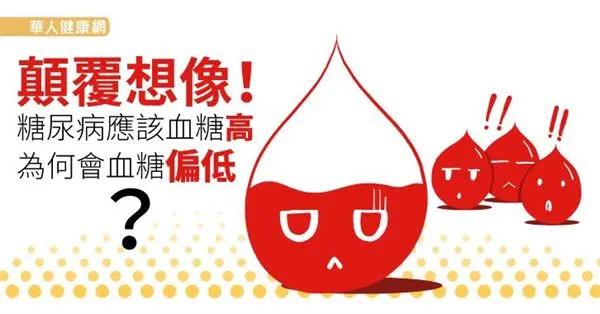
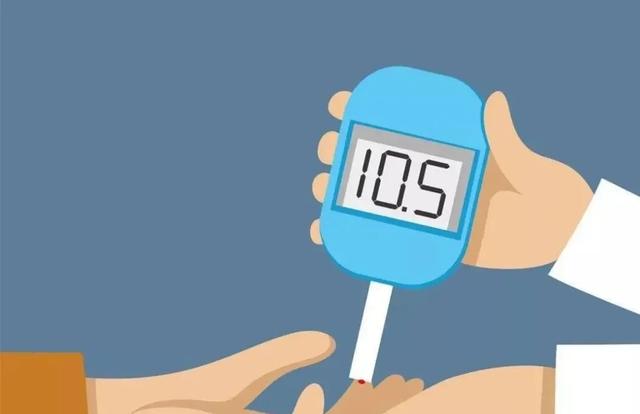
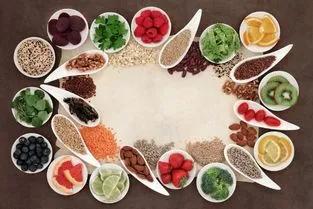
Diabetes is caused by a decrease in the ability of insulin to process sugar, which results in an increase in the amount of sugar in the blood, with the consequence of "corrosive" damage to the body's tissues. Therefore, diabetes needs to control sugar through dietary control, exercise, medication and other means, try to precise sugar intake, so that the sugar in the blood is enough for the body to consume and excessive accumulation of weight in the steel wire.
Diabetes mellitus is an absolute or relative deficiency in insulin secretion, not a lack of sugar, but an impairment in sugar utilization.
[Professional doctor to answer your questions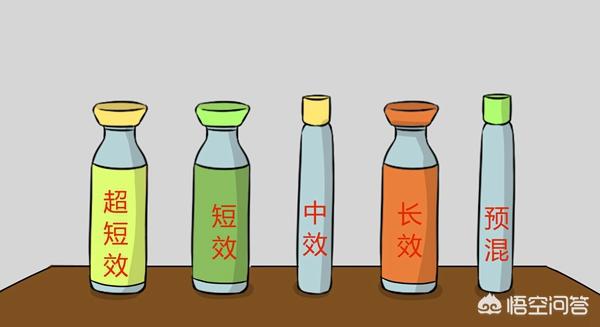
This problem exists in many people with diabetes, it seems to be a very contradictory also seems to have some sense, in fact, is a half-understanding of the mechanism of diabetes, especially on the insulin in the end is not clear what the role of the results, to understand.
The most direct manifestation of diabetes is the elevation of blood glucose, blood glucose refers to the glucose in the blood, the higher the glucose content in the blood the higher the blood glucose will be, and blood glucose is mainly derived from daily dietary carbohydrates, carbohydrates are digested and broken down into glucose, which is absorbed into the bloodstream as blood glucose in the small intestine, the absorption process does not require the participation of insulin, and it will not be absorbed because of the lack of insulin.
When glucose is absorbed into the blood to become blood sugar, there are two main ways to go, one is to become the cells to maintain normal physiological activities of the energy material to be utilized, and the second is the excess blood sugar will be converted into fat storage for a rainy day. In both processes, insulin must be involved.
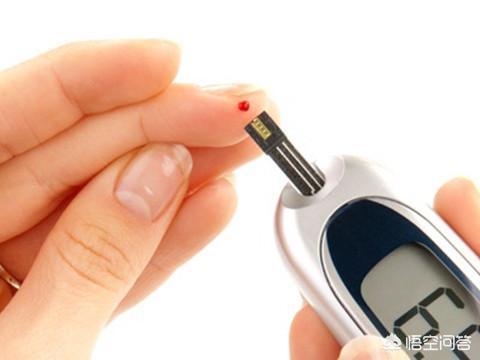
On the one hand, blood sugar to enter the cell must rely on insulin as a means of transportation in order to transport, on the other hand, blood glucose to fat must rely on insulin as a "conversion agent" to complete the conversion, if not enough insulin, the two processes can not be successfully completed, the glucose will be a large number of retention of blood glucose in blood glucose to cause blood sugar increase. If there is not enough insulin, both processes cannot be completed successfully, and glucose will be retained in the blood sugar causing an increase in blood sugar.
At this time, if the diet does not restrict foods containing carbohydrates (sugar), more glucose is absorbed into the blood, and the body is unable to complete the use of blood glucose and conversion, the result is that there is more and more glucose in the blood glucose, the degree of hyperglycemia will be more and more serious and more difficult to control.
Therefore, people with diabetes can lower their own blood sugar levels by controlling their diet to reduce the sources of blood sugar, and on the other hand, it helps to make the limited insulin play more of a role in transporting blood sugar into the cells to be utilized, and to maintain blood sugar at as low a level as possible.
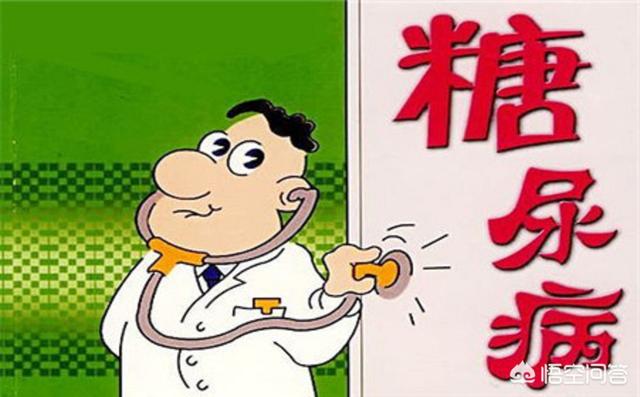
What you need to know is: insulin is secreted by pancreatic islet cells, the amount of secretion is closely related to the level of blood glucose, the higher the blood glucose level, the stronger the stimulation of pancreatic islet cells, the heavier the secretion load; diabetic people have their own pancreatic islet cells have been damaged and partially apoptotic, if more glucose is absorbed into the bloodstream, the pancreatic islet cells will undoubtedly be subjected to a stronger stimulation of overload, which will further increase the risk of damage and apoptosis. If more glucose is absorbed into the blood, the pancreatic islet cells will undoubtedly be more strongly stimulated to work overload, which will further increase the risk of damage and apoptosis, therefore, diabetic people control the diet is not only the basis of controlling blood glucose, but also to stop and slow down the aggravation of the disease.
I hope this answer can help you, welcome to click on the attention and leave a message, together to learn and exchange more health knowledge.
Diabetes is caused by insufficient secretion of insulin (type 2) or non-secretion of insulin (type 1), resulting in the inability to utilize the glucose eaten into the body, blood glucose rises, resulting in the fundus of the eyes, kidneys, heart, cerebral blood vessels and other complications. The main role of insulin is to promote the body to absorb and utilize glucose into energy for the body to maintain normal physiological activities. Eating less food is to prevent too much excess blood glucose from causing damage to the body, and giving insulin is to supplement the insulin deficiency. Insufficient or no insulin, you eat in more food or sugar, can not be absorbed, will only play a higher and higher blood sugar, the body damage more and more, more and more complications. This is why it is so important to control your diet in diabetes, and it has become a consistent treatment throughout the treatment of diabetes.
This question and answer are from the site users, does not represent the position of the site, such as infringement, please contact the administrator to delete.